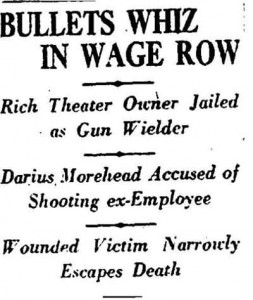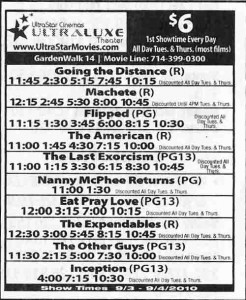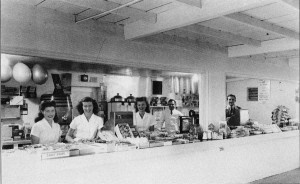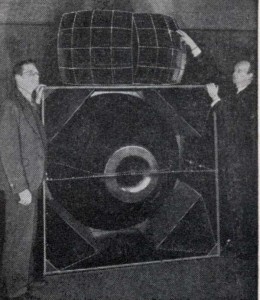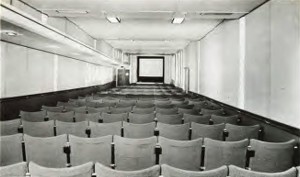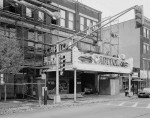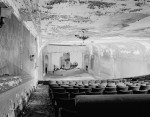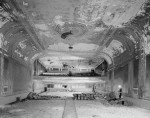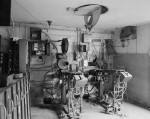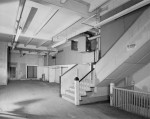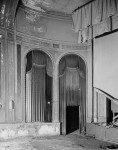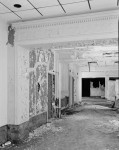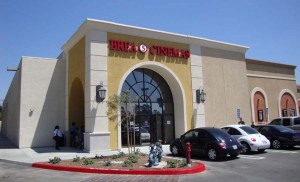Tags: Comments Off on The Garden Theatre & A Wage Row
The Garden Theatre & A Wage Row
October 9th, 2010 by
Respond
A Wasted Patch of Green
October 3rd, 2010 by
Respond
Walking past Costa Mesa’s bustling Orange County Performing Arts Center this evening, I took a shortcut which unintentionally brought me to a site of cinema loss and waste.
This grass covered clearing was once a movie going Mecca for Orange County, the South Coast Plaza Theatre. Some two decades removed from the “Westwood of Orange County” glory days and over a year since the complex was razed, the, now empty, lot’s past is a forgotten footnote for most. The former place of countless cinematic memories and shared experiences relegated to little more than convenient shortcut and office break area.
I imagine the lot’s vacancy is temporary; merely awaiting a rebound in the real estate market, so yet another glass and steel office tower can be erected. However, I can’t help but reflect on what a waste the demolition was. As healthy business flocks to the neighboring performing arts center, for a live version of “Peter Pan”, or travels a few miles to the sub par Metro Pointe 12, for a screening of “The Social Network”, there just as easily could have been a grand cinema here, offering up it’s own unique experience.
Tags: Comments Off on A Wasted Patch of Green
New Name For A Familiar Problem
September 5th, 2010 by
Respond
Tags: Comments Off on New Name For A Familiar Problem
Drive-In Snack Bar
September 1st, 2010 by
Respond
Today’s picture captures the Orange Drive-In’s snack bar and staff (circa late 1940’s?). As with most drive-ins, the Orange operated a cafeteria style snack bar, with patrons passing along a stationed service line, before checking out at the register; another, larger, stand was built when the venue added a second screen in the late 60’s. A big money maker in it’s day, your typical drive-in snack bar could pull in as much as 40% of a location’s gross receipts, despite the viewing format’s relatively loose outside food/drink policy.
Tags: Comments Off on Drive-In Snack Bar
Stereo Sound
August 23rd, 2010 by
Respond
Tags: Comments Off on Stereo Sound
Ultrastar Takes On The Gardenwalk 14
August 20th, 2010 by
Respond
Anaheim’s Gardenwalk theatre is scheduled to reopen under the management of San Diego based Ultrastar Cinemas today (8/20).

The former Sanborn/Movie Experience Cinemafusion had been tied up in rather contentious bankruptcy proceedings, after investors lost an estimate $5 million on the theatre, with much of the venue closed and partially stripped of fixtures for the past month. While the theatre’s IMAX and 21+ offerings remain in limbo, Ultrastar has stated that they are confident the site can be turned around, via aggressive marketing; a tall order, under the most optimistic of outlooks, as the entire Gardenwalk complex has failed to carve out even a subsistence business level thus far.
Tags: Comments Off on Ultrastar Takes On The Gardenwalk 14
Golden Era Cinema At Sea
August 18th, 2010 by
Respond
Today’s photo is of the RMS Queen Mary’s cinema (circa 1936). At the time of the ship’s launch, the movie theatre was promoted as being “talkie” equipped and featuring a “giant screen”, for the “leisurely pleasure” of first class passengers. While the theatre’s sound quality remains a matter of conjecture, the “giant screen” claim looks to have been a bit of marketing creativity (even by standards of the day).
One can still visit the Queen Mary in Long Beach, but the original cinema area was converted to kitchen space shortly after the ship’s 1967 decommissioning.
Tags: Comments Off on Golden Era Cinema At Sea
Forgotten Americana: A Familiar Story
August 12th, 2010 by
Respond
Tags: Comments Off on Forgotten Americana: A Familiar Story
Back From The Dead: The Brea Plaza 5
August 7th, 2010 by
Respond
Tags: Comments Off on Back From The Dead: The Brea Plaza 5
Laguna’s Many Lynn Theatres
August 3rd, 2010 by
Respond
Tags: Comments Off on Laguna’s Many Lynn Theatres

